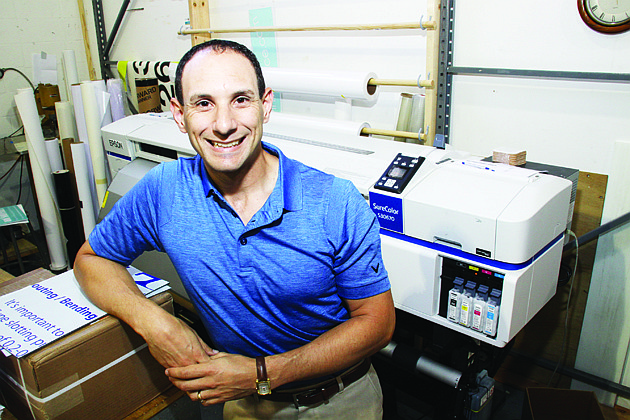- November 25, 2024
-
-
Loading

Loading

Randy Mitchelson started National Web Leads as a favor for some friends, but it turned into something much bigger.
College friends persuaded Mitchelson to start the company and license the Web software they were creating to generate sales leads for financial services firms. At the time, Mitchelson was one of three market managers for Bank of America in Lee and Collier counties, overseeing 600 employees. “It started out as a favor to friends, but then I saw it was a real business,” he says.
So in 2005, Mitchelson left the banking world behind and launched National Web Leads, licensing software designed by his college friends from Rennselaer Polytechnic Institute. National Web Leads created hundreds of websites that would invite users to submit applications for home mortgages, auto loans and cash advances, selling that information to financial services providers. The company also sold advertising on those websites.
Mitchelson got out of banking at the right time, but National Web Leads ceased to exist last year. “Things happen for a reason,” Mitchelson smiles.
Mitchelson, 42, is now vice president of sales and marketing with another startup called iPartnerMedia.com. But he agreed to share some of the lessons he learned in his entrepreneurial adventure with National Web Leads.
Lesson 1: Build a good sales team.
Revenues doubled annually at National Web Leads while Mitchelson and his team were building the business, eventually hitting $1.5 million annually. But their efforts to branch out beyond the consumer-finance sector proved to be difficult. Those challenges became painful when one customer representing 25% of the company's revenues stopped paying. “If we had solved the puzzle of sales, we would've been fine,” Mitchelson says. “It was our Achilles' heel.”
Mitchelson and his business partners had discussed hiring top sales people to diversify their client base away from consumer finance, but their fears of spending a six-figure salary on the wrong person held them back. “It's a hard pill to swallow,” says Mitchelson. “The sentiment was we could do it ourselves.”
But it's necessary to hire the best sales people, he says. “It needs to be a true investment,” he says. “Spend the money. Find a proven rainmaker, ideally in your industry.”
Lesson 2: Build a rainy day fund.
Mitchelson says his conservative approach helped him through some tough times. That's because National Web Leads extended terms with its clients, letting them pay after delivering the goods. “One of the risks is that you're always the bank,” he says.
Mitchelson learned from his banking experience to set up a loss-reserve account. “That allowed us to extend out. I subsidized the company through our savings,” he says.
But the rainy day fund also prolonged making tough decisions about maintaining a full staff. “We would go periods when we would pay ourselves less,” Mitchelson says. Looking back, he says, “You can't be afraid to cut staff.”
Lesson 3: Stay focused.
Don't try to build the next big thing without a firm commitment from a customer, Mitchelson advises. One employee worked on a project for a full year based on a verbal commitment from a prospective customer. When the company delivered the software, the customer backed out.
“We could've developed something else in that year,” Mitchelson says. In the technology world, where many deals are done on handshakes, it's still important to get firm commitments. “Get things in writing,” he advises.
Lesson 4: Check on your partners.
Mitchelson teamed up with new business partners in June 2012, but a deal to merge their companies never concluded because of clashing cultures.
“I should've asked more questions,” Mitchelson says. At the time, a merger appeared ideal because of the partner's sales prowess and history of successful exits. Despite spending $20,000 on legal fees, the business combination didn't work out and National Web Leads ceased to exist.
In retrospect, Mitchelson says he should have sought more advice from his industry peers. Maybe some of them would have warned him. “If I had made 10 calls to people I knew, I would've gotten red flags,” he says.